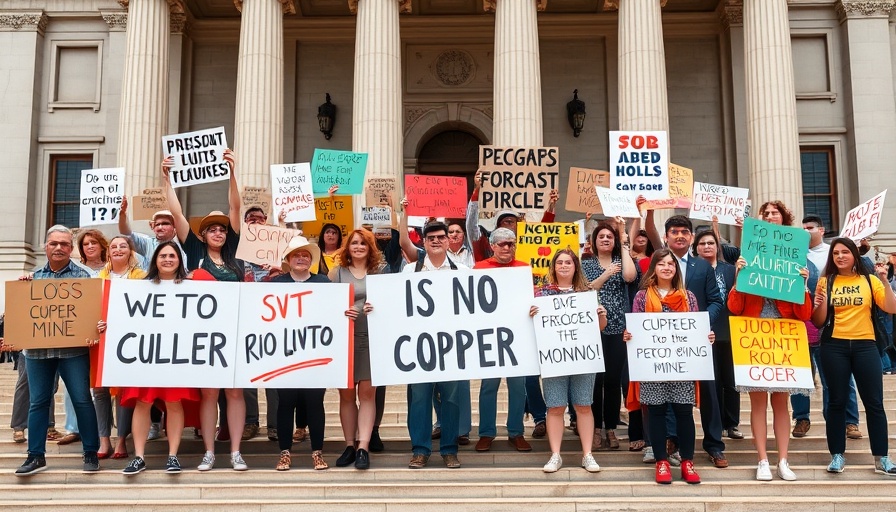
US Judge Blocks Controversial Land Exchange for Rio Tinto Mine
A federal judge has temporarily halted a significant land exchange involving Rio Tinto and BHP's proposed copper mining project in Arizona, a region where local Native American tribes have voiced strong opposition. This ruling comes amid ongoing debates over the environmental impacts and cultural significance of the land in question.
Judge Steven P. Logan of the District of Arizona issued a temporary restraining order, effectively pausing the exchange of federal land for state land in a deal worth several hundred million dollars. This decision marks an important moment in the ongoing clash between indigenous rights and corporate interests in resource extraction.
The Heart of the Matter: Indigenous Rights vs. Corporate Growth
Native American groups, particularly the San Carlos Apache Tribe, have been vocal in their resistance to the mine, arguing that it threatens sacred ancestral land and the delicate ecosystem of Oak Flat, an area known for its natural beauty and biodiversity. This counteraction highlights the ongoing struggle indigenous communities face in protecting their land against industrial expansion.
In contrast, proponents of the mine argue that the project is essential for fulfilling rising copper demands and will create jobs and boost the local economy. The tension surrounding this issue is emblematic of the larger national conversation about balancing economic development with environmental stewardship and indigenous rights.
Future Implications for Investment and Mining in the Valley
The judge's ruling not only affects the immediate situation but may also ripple through investment strategies within the mining sector. Copper is a vital element for numerous industries, particularly as the world moves towards greener energy solutions that require substantial quantities of this metal. Companies looking to invest in mining may find increased scrutiny surrounding environmental impact and community relations.
Experts suggest that this could lead to investments being redirected towards more sustainable mining practices. Companies may need to reassess how they approach land agreements and engage with local communities to avoid backlash similar to what Rio Tinto is currently experiencing.
The Role of Sustainable Investing in Today’s Market
This incident underlines the growing importance of sustainable investing. Investors are increasingly aware of the impact their investments can have on local communities and the environment, pushing for more ethical and transparent practices. As the backlash against large-scale mining projects intensifies, the demand for sustainable mutual funds and ETFs is likely to rise.
Investors looking to make an impact could explore options in sustainable funds that prioritize ethical considerations alongside traditional financial metrics. As such, they align their portfolios with broader societal values while still pursuing profitable returns.
Cultural Resonance: The Human Stories Behind the Land
The fight over Oak Flat is more than just a legal or economic issue; it’s deeply tied to cultural identity for many Native Americans. The land holds spiritual significance to tribes across the region, emphasizing the human element within these corporate negotiations.
From the perspective of the San Carlos Apache Tribe, the fight for Oak Flat is not just about one piece of land; it is about preserving their way of life, history, and future. The community’s plight demonstrates the urgent need for a dialogue that respects both indigenous rights and economic needs, fostering a more inclusive approach to development.
Conclusion: What Lies Ahead?
The temporary halt on the land exchange is a pivotal moment not only for Rio Tinto and BHP but for the ongoing discussion about indigenous rights, corporate responsibility, and sustainable practices. As this case progresses through the courts, it may serve as a benchmark for future mining projects, influencing how industries interact with indigenous communities.
Investors, policymakers, and stakeholders should take heed of these developments, recognizing the critical balance between economic growth and environmental integrity in today's complex landscape.
 Add Row
Add Row  Add
Add 



 Add Row
Add Row  Add
Add 

Write A Comment